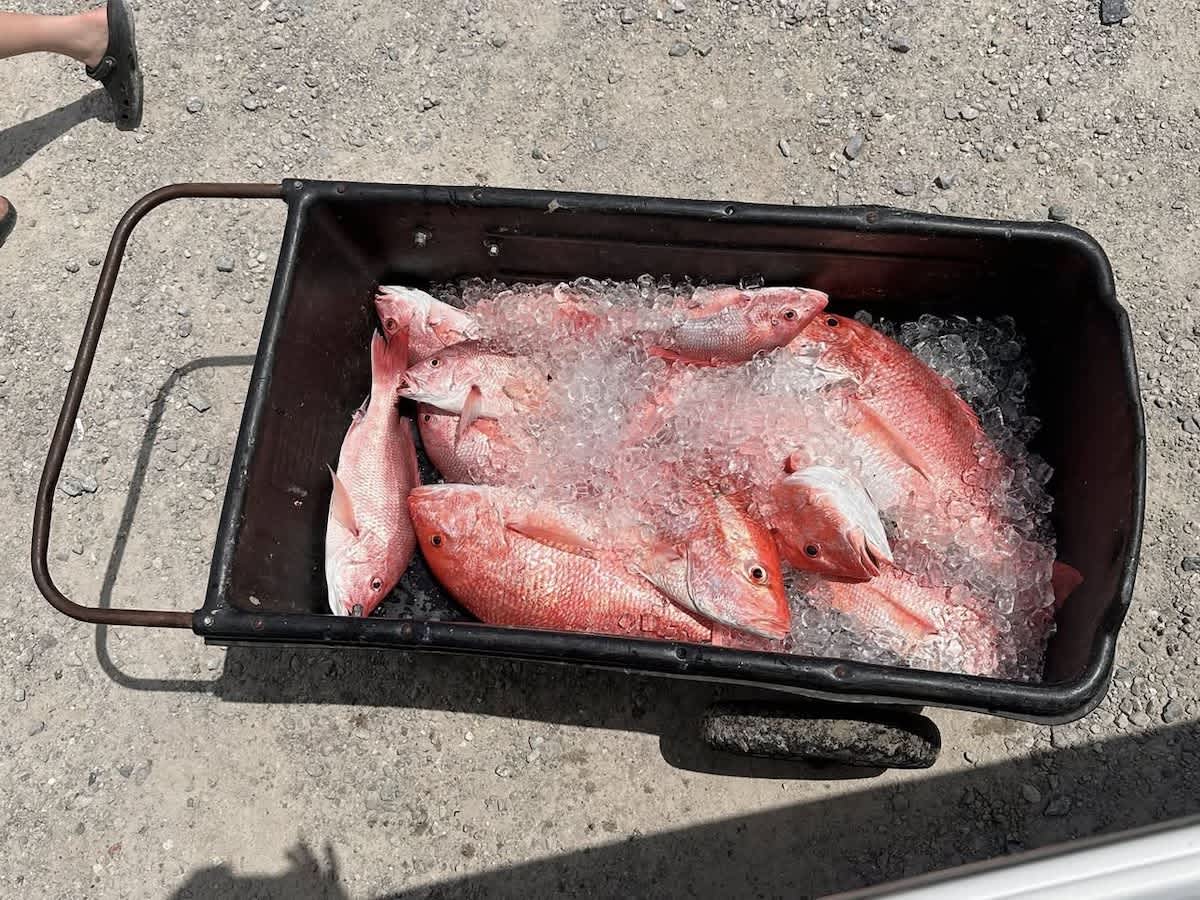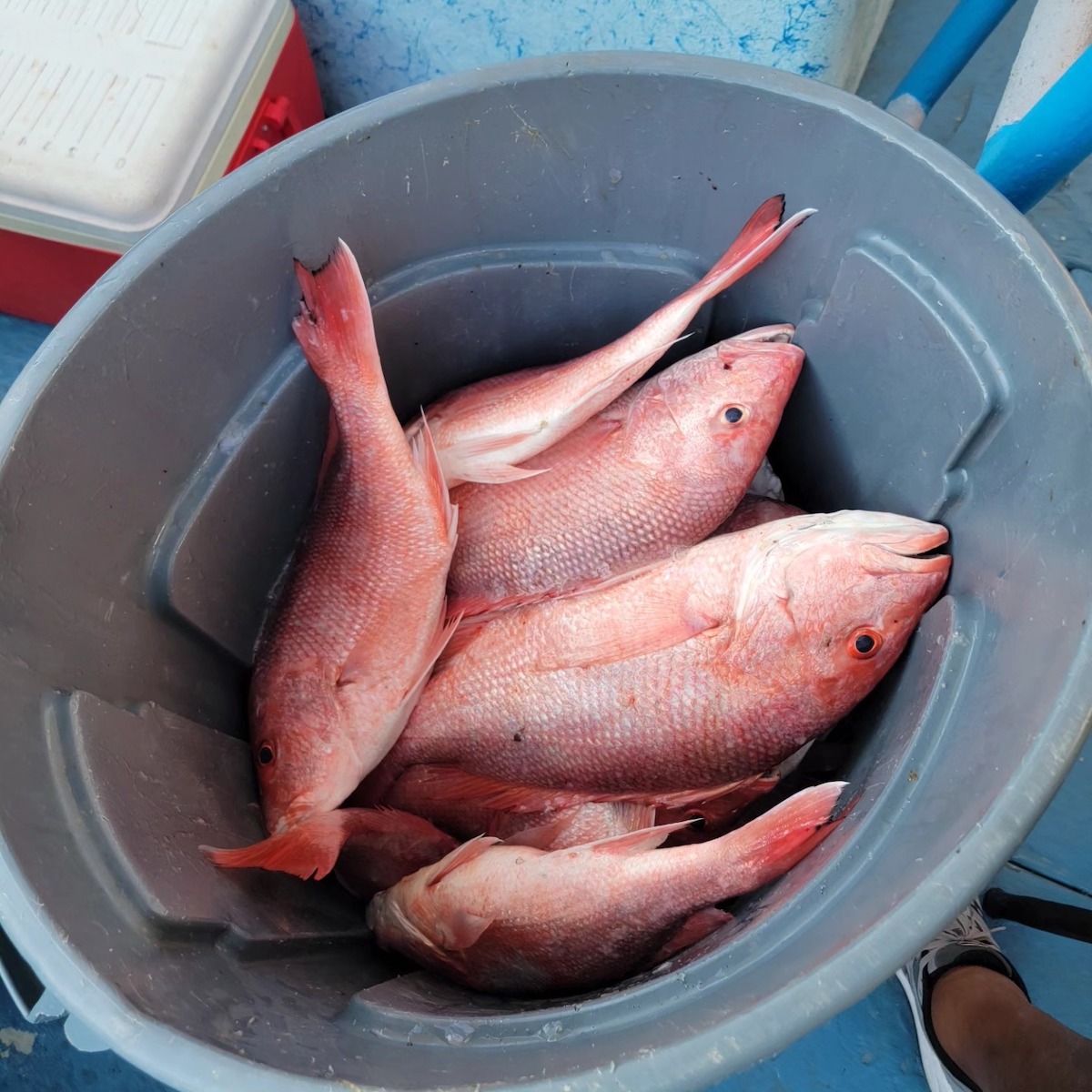Keith Lusher 05.30.25

South Carolina Governor Henry McMaster has signed laws giving the state authority over pink snapper and 54 different fish species inside its coastal waters, marking a big shift from federal oversight that has severely restricted fishing alternatives.
Senate Invoice 219, which handed unanimously by way of each chambers of the state legislature, permits leisure anglers to fish year-round for all 55 species within the pink snapper-grouper complicated inside South Carolina’s three-mile territorial restrict. The brand new regulation establishes a state administration framework for species beforehand regulated solely by the Nationwide Oceanic and Atmospheric Administration.
“This new regulation displays South Carolina’s dedication to commonsense, homegrown options,” McMaster stated in the course of the invoice signing. “Our anglers deserve a system that’s truthful, science-driven, and tailor-made to our state’s distinctive waters, not a one-size-fits-all strategy.”
The laws addresses mounting frustration with federal fishing restrictions which have drastically restricted pink snapper seasons. Final 12 months, NOAA Fisheries opened the leisure pink snapper season for simply sooner or later, and the business fishery operated for lower than a month. Poor climate situations in the course of the temporary leisure opening prevented many anglers from profiting from the restricted alternative.
State Senator Stephen Goldfinch, who sponsored the invoice, argued that federal knowledge considerably underestimates pink snapper populations in South Carolina waters. “It’s clear to everybody who has held a fishing pole or has been on a ship offshore that the info is approach off,” Goldfinch defined. “You possibly can’t have interaction in backside fishing with out catching an overabundance of pink snapper.”
Federal restrictions stem from NOAA assessments indicating that South Atlantic pink snapper shares are overfished and topic to ongoing overfishing pressures. This contrasts sharply with Gulf of Mexico pink snapper populations, which federal scientists think about wholesome and never overfished. The company makes use of catch fee knowledge from a number of sources, together with state-specific surveys and the Marine Leisure Data Program, to set seasonal limits designed to forestall overfishing.
NOAA Fisheries faces a June 2025 deadline to implement a brand new pink snapper administration plan following a 2024 court docket settlement, and the company has performed a number of public hearings on proposed adjustments.
Gettys Brannon, president and CEO of the South Carolina Boating and Fishing Alliance, praised the state’s proactive strategy. “If the federal authorities have been to offer us management, we might have already got the framework in place for state administration and state limits inside state waters,” Brannon stated.
The brand new regulation positions South Carolina to probably broaden its administration authority if federal lawmakers grant states jurisdiction past the present three-mile restrict. Goldfinch expressed optimism about extending state management to 40 or 50 miles offshore, just like profitable expansions in different areas.
“Whenever you take a look at the gulf, they’ve gone from having two or three days when it was underneath the federal fisheries administration system, to 126 days,” Brannon famous, referencing Florida’s current success in securing prolonged fishing seasons. “These are the type of days that we’d like off the coast of South Carolina.”
The South Carolina Division of Pure Sources will regulate the newly state-managed species by way of its current fisheries rulebook. Nonetheless, some constitution boat operators stay cautious about potential conflicts between their federal permits and the brand new state rules.


Congressman Russell Fry applauded the governor’s motion and indicated assist for efforts to strengthen South Carolina’s pink snapper trade. The laws represents what supporters name a primary instance of federalism, with states asserting their capability to higher handle native marine sources than distant federal bureaucrats.
The regulation takes impact instantly, giving South Carolina anglers unprecedented entry to pink snapper and associated species inside state waters whereas establishing a basis for probably broader administration authority sooner or later.


